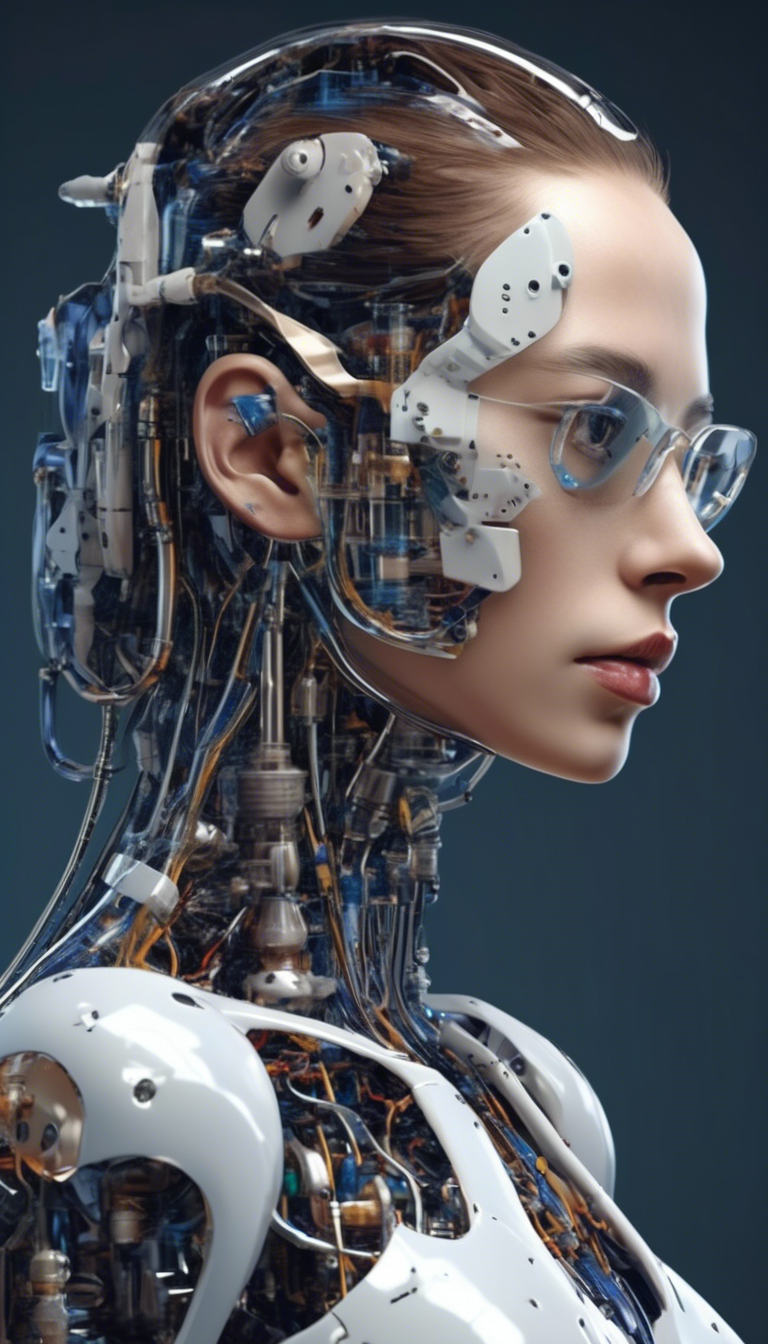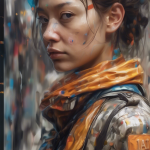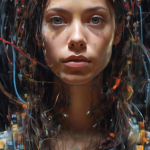Exploring the Creative Potential of AI Image Generators
The rise of AI image generators has revolutionized the way we create and engage with visual content. From artists and marketers to casual users, these tools have unlocked creative potentials that were previously unimaginable. With just a few clicks, anyone can generate stunning visual artworks, designs, and illustrations. This accessibility invites us to explore the myriad ways that AI image generators can enhance creativity in today’s digital landscape.
AI image generators utilize advanced algorithms to produce images from textual descriptions or existing art styles. This means that users can input specific prompts—ranging from simple phrases to complex descriptions—and watch as their ideas come to life. The technology behind these generators often involves deep learning neural networks, which train on vast datasets to understand and replicate styles, colors, and forms. As a result, the outputs can be impressively varied and sophisticated.
The Mechanics Behind AI Image Generation
Understanding how these generators work can enhance your appreciation of the creative possibilities they offer. Here are a few key elements:
- Text-to-Image Synthesis: This technique allows users to input descriptive text and receive corresponding images. It’s like having a personal illustrator who brings your words to life.
- Style Transfer: AI can mimic the styles of famous artists or established artistic movements. Users can transform their images by applying different aesthetics, from Van Gogh to Cubism.
- Customization: Many generators allow for fine-tuning, enabling users to adjust parameters, such as color schemes and composition, to fit their specific needs.
These core functionalities empower both professional creators and hobbyists to push the boundaries of artistic expression. Whether it’s crafting unique marketing visuals or personal projects, the potential for innovation is vast.
Applications in Various Fields
AI image generators are not just a passing trend; they have practical applications across multiple industries.
- Art and Design: Artists can use generators for inspiration or to experiment with different styles. They can iterate rapidly on concepts without spending hours on initial drafts.
- Marketing: Marketers can create eye-catching visuals tailored to specific campaigns, enhancing engagement and brand visibility. Custom images can be generated for social media, brochures, or websites in less time than traditional methods.
- Content Creation: Bloggers and content creators are leveraging these tools to illustrate their articles, making them more visually appealing and relatable to readers.
Moreover, these tools help democratize art creation, making it accessible to those without formal training. This opens the door for countless creative minds who can now express themselves visually, even if they lack traditional artistic skills.
The Experience of Using AI Image Generators
Engaging with AI image generators is generally intuitive. Most platforms feature user-friendly interfaces, allowing you to input prompts and adjust settings easily. After you submit your input, the generator works its magic, often delivering results within seconds. This quick turnaround time means you can experiment freely, refining your ideas until you achieve the perfect visual.
In addition, many platforms incorporate community features. Users can share their creations, offer feedback, and discover inspiration from others. This interaction fosters a collaborative environment where creativity flourishes, highlighting the social aspect of art in the digital age.
Challenges and Considerations
While AI image generators offer exciting opportunities, they also pose some challenges. Issues of copyright and originality arise as the technology becomes more mainstream.
- Copyright Laws: As AI creates images based on existing styles, it raises questions about ownership and intellectual property.
- Bland Outputs: Not all generated images will meet your expectations. Sometimes the results can be generic or uninspired.
- Ethical Implications: There are discussions around the ethics of replacing human artists with AI, leading to the question of what defines originality.
Addressing these concerns is essential as technology evolves. Finding a balance between leveraging AI’s strengths and preserving the essence of human creativity is crucial.
As we continue to explore the creative potential of AI image generators, it’s clear that they have the capacity to reshape how we think about art and design. By blending technology with imagination, creators are poised to redefine artistic expression in ways we’re only beginning to comprehend. The journey ahead is undoubtedly exciting for every enthusiast ready to embrace a new era of creativity.
The Impact of AI Image Generation on Digital Art and Marketing Strategies
The digital landscape is undergoing a profound transformation thanks to the advent of AI image generation. These sophisticated algorithms not only redefine creativity but also supercharge marketing strategies, opening new avenues in both digital art and commercial enterprises.
AI image generators employ advanced neural networks to produce unique images based on textual prompts. This technology has democratized art creation, allowing anyone with an idea to generate visuals, regardless of their artistic skills. But what does this mean for digital artists and marketers alike? The impact stretches far and wide.
Empowering Creativity and Accessibility
For many artists, the traditional barriers to creating visually striking content have suddenly become less daunting. AI image generators enhance creativity by:
- Providing inspiration: Artists can input concepts and receive stunning visual interpretations, igniting new ideas.
- Simplifying workflows: By automating the image generation process, creators can spend more time refining their concepts rather than starting from scratch.
- Expanding possibilities: The variety of styles and outputs allows artists to explore genres or themes they might not have considered.
This ease of access is transforming not only novice artists’ approaches but also seasoned professionals’. The interplay between human creativity and machine efficiency fosters a rich collaborative environment, leading to breathtaking results that push the envelope of what art can achieve.
Revolutionizing Marketing Strategies
AI-generated images are reshaping marketing strategies in various sectors. Businesses are capitalizing on this technology to enhance their brand stories and engage customers in innovative ways. Key strategies include:
- Customizable visual content: With AI, businesses can create tailored visuals for specific audiences, ensuring that marketing materials resonate on a personal level.
- Cost-effectiveness: The reduction in costs associated with hiring designers or purchasing stock images allows businesses, especially startups, to allocate resources more efficiently.
- Rapid prototyping: Marketers can quickly generate multiple iterations of visual concepts for campaigns, making it easy to test and refine their strategies before launching.
This approach not only saves time but also fosters a data-driven mindset. By analyzing audience engagement with different visual styles, marketers can optimize their content strategy effortlessly.
Enhancing Branding and Identity
In today’s visually driven marketplace, establishing a compelling brand identity is crucial. AI-generated images can dramatically enhance brand presence by:
- Creating unique graphics: Businesses can develop assets that stand out from competitors, allowing them to carve out a distinct niche in their industry.
- Maintaining consistency: AI tools help ensure that the style and tone of images across platforms remain cohesive, reinforcing brand recognition.
- Encouraging relatability: Custom images that resonate with target demographics can foster emotional connections, driving customer loyalty.
Brands that leverage AI for image generation often find their marketing campaigns lead to increased engagement and conversions. This tactical shift allows for real-time adjustments based on customer feedback and performance metrics.
The Ethical Consideration
While the benefits of AI image generation are compelling, they do bring forth important ethical considerations. Concerns about copyright and authorship rights arise as AI technology continues to advance. As artists and businesses navigate these complexities, it’s crucial to uphold a balance. Respecting originality while embracing innovation is vital for a healthy ecosystem.
Future Opportunities
The horizon looks promising for AI image generation in both digital art and marketing. As technology evolves, so too will the capabilities of these image generators. From improved accuracy in interpreting prompts to the potential for even more nuanced artistic styles, the future holds a wealth of opportunities. Additionally, as an increasing number of industries incorporate AI into their workflows, the creative possibilities are limitless.
AI image generation is profoundly influencing the world of digital art and marketing strategies alike. By empowering creativity, enhancing branding, and streamlining processes, this technology is paving the way for a new era of visual communication. Embracing this transformative force will undoubtedly define how artists and marketers engage with audiences in the years to come.
Conclusion
As we delve deeper into the fascinating realm of AI image generators, it’s evident that their emergence is reshaping both the creative landscape and the strategies employed in digital marketing. The creative potential of these tools is limitless. Artists and designers are redefining their workflows, leveraging AI’s capability to generate intricate visuals that can inspire fresh ideas and concepts. For instance, an artist might use an AI image generator to create several iterations of a concept, sparking inspiration and igniting the human imagination. This symbiotic relationship between technology and creativity emphasizes that AI is not about replacing artists, but rather enhancing their abilities.
In the world of digital art, the empowerment of creators through AI technologies is remarkable. Artists are now able to bridge gaps between traditional and modern artistic methodologies. They can produce stunning visuals rapidly, allowing them to take on more projects, explore diverse styles, and ultimately make a mark in an increasingly competitive landscape. With AI image generators, artists can experiment without the constraints that traditional mediums may impose, opening doors to creative avenues previously thought impossible. The ability to instantly generate visual mock-ups for ideas allows for quick iterations, streamlining not just the creation process, but also decision-making for clients.
Marketing strategies are also experiencing a revolution thanks to AI image generators. Businesses are discovering that visually striking content is essential to capture attention in a crowded marketplace. Companies can now create tailored marketing visuals that resonate with specific demographics, giving them a competitive edge. AI-driven platforms enable marketers to generate images that align perfectly with their brand identity, ensuring consistency and familiarity in their communication efforts. This targeted approach significantly enhances engagement rates, leading to higher consumer retention and loyalty.
The seamless integration of AI image generators into digital marketing strategies can evolve the advertising landscape, pushing brands to adopt more dynamic and adaptable campaigns. Brands can rapidly respond to trends, using AI-generated visuals to create timely content that speaks to current events, cultural shifts, or emerging consumer interests.
Moreover, AI image generation can dramatically reduce costs associated with content production. Businesses no longer need to allocate vast resources for photo shoots or graphic design projects. Instead, they can harness the power of AI to generate high-quality images that meet their requirements. This affordability empowers small businesses and startups, allowing them to compete with established brands without a hefty budget.
When discussing these transformative effects, it’s crucial to acknowledge ethical considerations. As AI image generators become increasingly advanced, concerns around originality and copyright law come to the forefront. Users of AI-generated art must navigate the complexities of ownership and credibility. It’s essential for artists and marketers alike to maintain transparency about how AI has influenced their work, ensuring authenticity resonates with their audience.
Additionally, AI image generators can inadvertently reinforce stereotypes or biases present in their training data. As these algorithms become more integrated into creative and marketing processes, stakeholders must remain vigilant about the output they produce. This calls for ongoing dialogue about accountability, requiring creators and marketers to critically examine the images generated and ensure that they promote inclusivity instead of merely reflecting existing biases.
The landscape of AI image generation continues to evolve, and its impact on both artistry and marketing cannot be overstated. Embracing these tools opens up horizons for innovation, creativity, and effective communication. In this shifting paradigm, individuals and businesses equipped to master AI-driven techniques will likely lead the charge into the future, harnessing technology to shape narratives, engage audiences, and create stunning visual content.
Ultimately, the fusion of creativity and technology rooted in AI image generators highlights a pivotal moment in the art and marketing worlds. As we move forward, the focus should remain not only on the impressive capabilities of AI but also on how we can wield this power responsibly and ethically. This approach will help shape a future where art reflects the richness of human experience while being enhanced by the incredible potential of artificial intelligence. The exploration into this frontier is just beginning, and the possibilities for innovation and transformation are boundless, paving the way for a new era of creative expression and strategic marketing.


